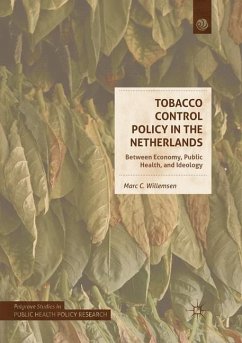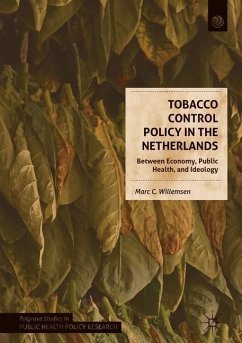
The Politics of Tobacco Control in Ghana and Malawi
A Comparative Study
Versandkostenfrei!
Versandfertig in 6-10 Tagen
52,99 €
inkl. MwSt.

PAYBACK Punkte
26 °P sammeln!
The tobacco companies continue to resist the efforts of NGOs and IGOs for promoting the adoption of laws that will prevent a tobacco epidemic in the developing countries. Using the global advocacy network, the multi-level policy transfer, and the liberal-constructivist theories, this book examines the politics characterizing the adoption of tobacco control policy in Ghana and Malawi. The study finds that neither of the two countries has any legislation that is properly enforced to control tobacco but certain voluntary agreements have been adopted by the Ministry of Health through administrativ...
The tobacco companies continue to resist the efforts of NGOs and IGOs for promoting the adoption of laws that will prevent a tobacco epidemic in the developing countries. Using the global advocacy network, the multi-level policy transfer, and the liberal-constructivist theories, this book examines the politics characterizing the adoption of tobacco control policy in Ghana and Malawi. The study finds that neither of the two countries has any legislation that is properly enforced to control tobacco but certain voluntary agreements have been adopted by the Ministry of Health through administrative directives for that purpose. The book concludes that voluntary agreements often considered ineffective tobacco control instruments in many western countries could be the means of controlling the health hazards associated with tobacco in developing countries where the National Parliament fails to adopt tobacco control legislation. This book will be a good material for courses in comparativepolitics and/or public policy analysis, interest group politics, and public health. Individuals interested in tobacco control in developing countries will also find this research piece very useful.












